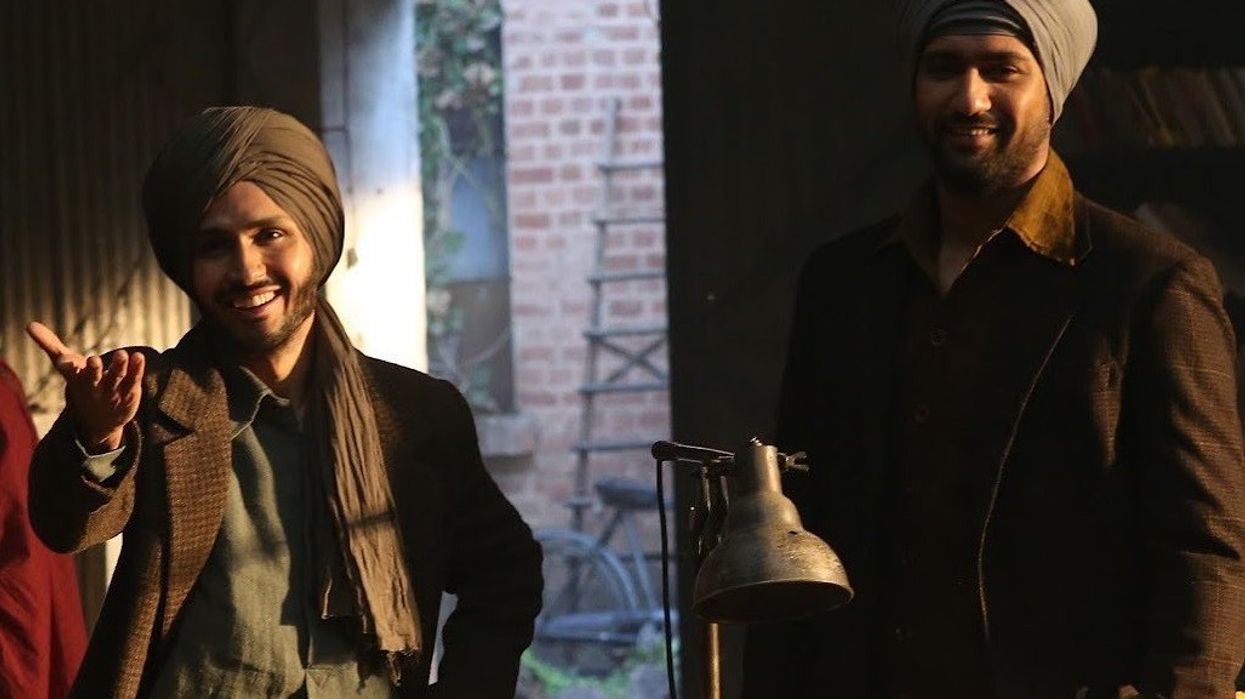Vicky Kaushal is gearing up for the release of Sardar Udham. The movie, which is directed by Shoojit Sircar, is slated to premiere on Amazon Prime Video, and a few days ago the trailer of the film was released.
Apart from Kaushal, the movie also stars actor Amol Parashar in a pivotal role. On Tuesday (05), Kaushal took to Instagram to unveil the first look of Parashar as Shaheed Bhagat Singh.
He posted, “My guru, my friend, my brother… Mera Bhagatya! Presenting @amolparashar as Shaheed Bhagat Singh. Glad we played this friendship Amol. . #SardarUdham #SardarUdhamOnPrime | Oct 16.”
Parashar commented on the post, “Mere bhai mere bhai mere bhai! ✊❤️ What a privilege to play this character, to share screen space with you and playing off your brilliant talent and energy! Some of the best days of my work life. Big big jhappi mere Udham! Tu revolutionary hai re!”
The film also stars Banita Sandhu and now, we wait for her first look from the movie to be unveiled.
Sardar Udham will start streaming on Amazon Prime Video on 16th October 2021.
While talking about the film, at the trailer launch, Kaushal had stated, "A person who had taken a note to avenge that bloodshed, not in India but by crossing borders 100 years ago, went to the heart of the British empire... For me, it is a story of resilience, bravery, patience, and a passionate person. Through this film, I wanted to explore that factor in me also. It's not the most easy role to touch. It's also a character that isn't widely documented in our history books.”





